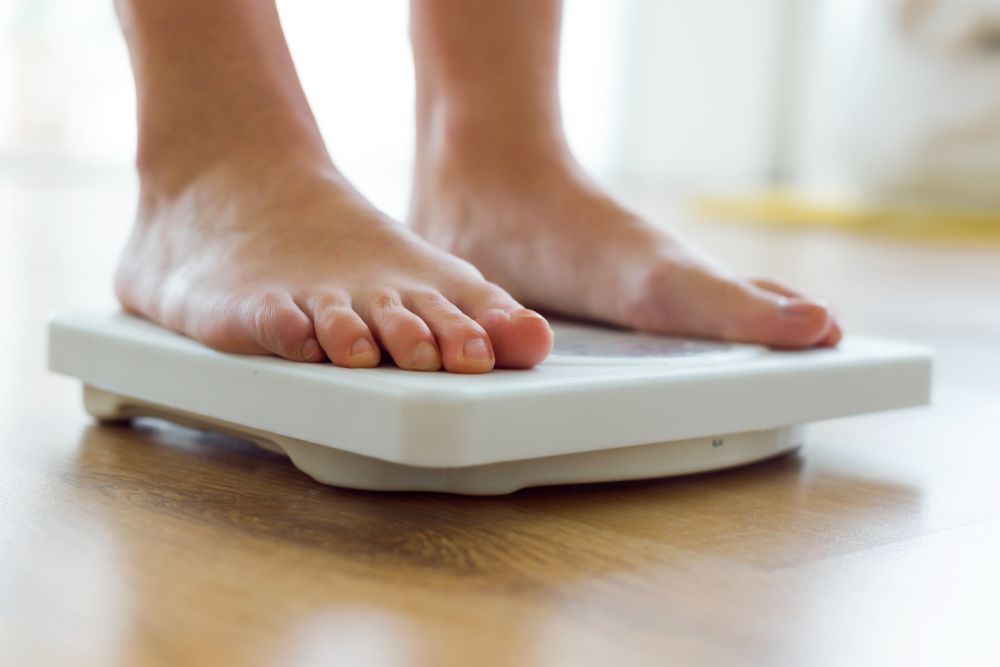Why running doesn’t help with weight loss (but is still really good for you)
A new study found out why running isn't a magic ticket to weight loss but why you should keep doing it anyway

People choose to start running for a lot of reasons, but weight loss is arguably one of the most common. Since many people associate the typical runner’s body with the elites they see cruising around the track at the Olympics, it’s logical that they would turn to running when trying to lose weight. But is running really the magic ticket to shedding pounds? As one scientist found out, it’s not — but that certainly doesn’t mean we shouldn’t do it. Here at Canadian Running, we encourage our readers to run not for weight loss, but to be happier and healthier, and now we have some science to back us up.

RELATED: 21 reasons to start running in 2021
Why doesn’t running help you lose weight?
Despite the millions of people downloading couch to 5K programs, Strava and other fitness apps, it hasn’t really resulted in any meaningful amount of weight loss. This seems counter to what we’ve always been taught, which is that if you expend more calories than you take in, the number on the scale will go down. Since running is a pretty high calorie-burner, it should be a sure-fire way to lose weight — so why isn’t it?
Herman Pontzer, a professor at Duke University in North Carolina, decided to investigate. Over the last decade, he has spent a portion of time with the Hadza, a hunter-gatherer people in northern Tanzania, who walk approximately eight and a half miles per day and get far more physical activity than the average Westerner. He wanted to find out how much energy these people actually expend on any given day, and he did so by providing them with drinking water with added hydrogen and oxygen isotopes. By measuring the different rates at which they were excreted in their urine, he and his team could calculate how much carbon dioxide they produced, and use that to determine how much energy they expended.
The result? Despite their high level of physical activity, the Hadza people expend pretty much the same level of energy as we do, relative to their body weight. This suggests that physically active people don’t expend any more energy than sedentary ones, and goes against everything the wellness and diet industry has been telling us for decades. So what gives?

In his book Burn, scheduled to be published next month, Pontzer explains that most of the energy your body uses (around 60 per cent) goes toward your basal metabolic rate. This feeds the cells in your muscles, organs and (most notably) your brain, so they can function properly. Your basal metabolic rate also keeps your immune system running and allows your body to produce necessary hormones and generate heat. Pontzer explains that your hypothalamus, which is the area of the brain that helps regulate metabolism, has a target energy expenditure. If you go beyond that amount (i.e., you expend more energy by running), your hypothalamus will down-regulate your metabolism to reduce the amount of energy it uses for everything else.
It uses many methods to do this, including suppressing your immune system’s inflammation response, lowering your body’s stress response and reducing your production of sex hormones. This is why running helps to cut down on inflammation and relieves stress, which, of course, are just two reasons why running is so good for you. Incidentally, it is also why Hadza men (as well as many elite male endurance athletes) have much lower levels of testosterone compared to less active men.
All of this is to say that your metabolism is extremely good at keeping you from losing weight because it wants to have some energy savings in the bank for a rainy day. This is also why simply cutting calories doesn’t result in long-term weight loss, because your metabolism will react in the same way as it does to exercise. So does this mean you should forget that learn-to-run program and toss your sneakers in the trash? Absolutely not. As we said, running has so many benefits, including improving your heart health, lowering your blood pressure, strengthening your muscles and bones and improving your mental health.

Remember, being thin doesn’t necessarily mean you’re healthy, and not being thin doesn’t mean you’re unhealthy, which is why weight loss is not a great reason to start a running program. Instead, we encourage you to run for all the other things it can do for you, and to appreciate what your body can accomplish on the roads, trails and track, regardless of its size. As Pontzer says, we’re designed to run, and while it may not make you smaller, it’ll make you live longer, healthier and happier.


